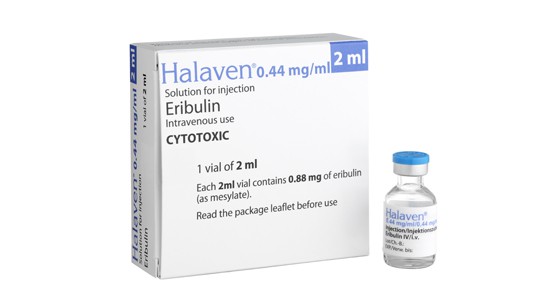
NICE has given a green light to Eisai’s third-line breast cancer therapy Halaven, reversing its 2012 rejection of the drug.
The UK health technology assessment agency has approved Halaven (eribulin) for routine treatment of patients with locally advanced or metastatic breast cancer that has spread after two prior chemotherapy regimens.
The decision to approve the drug was based upon new evidence that the drug could display substantial benefits over standard treatment, said NICE, including data showing that the drug can extend life by around three months compared with physician’s treatment of choice and quality-of-life data from a study comparing Eisai’s drug to capecitabine.
“This new evidence, together with the discount available through the patient access scheme, enabled the appraisal committee to conclude that eribulin represents good value for money,” said Prof Carole Longson, director of the centre for health technology evaluation at the agency.
Halaven is one of Eisai’s key growth products, accounting for 18.6bn yen ($181m) in sales in the first half of this fiscal year. The Japanese drugmaker has picked up approvals for the drug in the US, Japan and EU this year for the second-line treatment of soft tissue sarcoma, and has filed the drug for metastatic breast cancer in China.
Gary Hendler, chief executive of Eisai Europe, said the decision means that “after years of uncertainty for patients and poor management of the Cancer Drugs Fund, people with locally advanced or metastatic breast cancer in England will finally now have routine access to eribulin”.
The drug was approved in 2011 and Hendler said that in the interim Eisai has shown “great flexibility in pricing to maintain patient access to eribulin both in the CDF and with NICE”.
The company “would like the same opportunity to enable access to our newer cancer drug lenvatinib for radioiodine refractory differentiated thyroid cancer patients, however so far an unacceptable process has again taken precedence over patients,” he commented.
NICE is in the process of re-evaluating all the drugs covered by the CDF to ensure they meet cost-effectiveness targets.




